Political parties and candidates failed to fully respect media freedom and transparency during the general elections of May 11, 2025
Tirana, 14 May 2025
Tirana, 14 May 2025
On 22 January 2025, fourteen civil society organizations issued a joint statement urging political parties and candidates to respect fundamental principles of media freedom, transparency, and democratic debate before and during the electoral campaign leading to Albania’s general elections on 11 May 2025. Regrettably, numerous violations of these principles were observed in the months before, throughout, and on election day.
Full Access for Journalists to Electoral Events
Although political parties and candidates did not explicitly impose formal restrictions on journalists’ access to electoral events, in practice, journalists’ ability to cover campaign activities independently was limited. Political actors generally failed to proactively share event agendas, issue clear invitations, or facilitate journalists’ attendance, hindering media efforts to provide independent and comprehensive coverage. Additionally, certain incidents on election day directly impeded journalists’ ability to report independently, further violating the fundamental principle of open and transparent elections.
Transparency Regarding Pre-Packaged Political Materials
Despite clear recommendations calling for transparency in election-related coverage, political parties persisted in the entrenched practice of providing pre-packaged video and press materials to media outlets throughout the campaign. Consequently, media coverage frequently consisted of centrally produced political messages via video feeds provided by party teams rather than independently verified journalism. The lack of clear disclosure about the origins of such content blurred the distinction between independent journalism and political propaganda, significantly undermining transparency and impairing the public’s ability to critically assess electoral information.
Safeguarding Pluralism
The 2025 electoral period highlighted a skewed media landscape marked by unequal distribution of coverage that predominantly favored the two largest parties. Additionally, in early March 2025, the government ordered a one-year suspension of the TikTok platform, citing safety concerns. This decision was widely criticized and denounced as an act of censorship that severely limited online political discourse during a critical electoral period. Civil society organizations have challenged this decision at the Constitutional Court, arguing that it undermines freedom of expression and democratic pluralism.
Public Debates and Candidate Confrontations
Although television studios offered ample airtime for election coverage, the campaign unfolded without a single face-to-face debate between the Socialist and Democratic Party leaders, and most ministerial and parliamentary contenders likewise declined joint forums with their opponents. Instead, candidates favoured solo interviews, while prime-time talk shows were filled with analysts and commentators standing in for the politicians themselves. In the absence of direct debates, initiatives such as the series “Face to Face with the Facts” attempted to fill this gap by presenting candidates with identical questions on important public issues. However, the overall preference for carefully managed appearances over direct exchanges left voters without the opportunity to see competing programmes challenged in real time, weakening the deliberative quality of the campaign.
The campaign prioritised online virality over genuine dialogue, leaning on personal attacks, partisan spin, and, at times, outright hate speech. Spectacle replaced substance, crowding discussion of concrete policies or government performance and undermining public trust.
Independence and Editorial Freedom of Media and Journalists
Despite formal commitments to safeguard press freedom, the election period was marked by repeated intrusions on editorial independence and a climate of intimidation. Senior officials, including the Prime Minister, publicly disparaged critical outlets and demonstrated hostility towards journalists; women reporters were subjected to gender-based smear campaigns and coordinated online harassment; and several journalists received direct threats, some escalating into physical confrontations on election-day itself. This hostile rhetoric was accompanied by political interference, most notably Parliament’s election of the new RTSH Steering Council, raising serious concerns about political control over the public broadcaster. Taken together, these pressures fostered self-censorship among journalists and deprived voters of fully independent scrutiny of those seeking office.
Transparency in Communications
Transparency in campaign communications, such as clearly labelling paid political content and keeping state resources separate from party activity, was a core principle that was repeatedly breached during this election period. Several television stations openly sold paid “coverage packages” and on-air interviews to political parties, without labelling them accordingly, turning news programming into unlabelled advertising. At the same time, government social-media channels were repurposed as partisan billboards, with official pages amplifying campaign posters and slogans. Online, a surge of anonymous or misleading political pages and ads, some generated or amplified with artificial-intelligence tools, circulated without clear sponsorship, further obscuring the true origin of electoral messaging.
We urge political parties, state institutions, regulatory bodies, and relevant stakeholders to promptly address these shortcomings and reaffirm their commitment to media freedom, transparency, and democratic accountability.
Our organizations will continue to monitor developments, advocate for essential reforms, and collaborate with stakeholders to enhance democratic principles.
Signatories:
Center Science and Innovation for Development (SCiDEV)
Albanian Helsinki Committee (AHC)
Institute for Democracy and Mediation (IDM)
Albania Media Council (AMC)
Association of Journalists of Albania (AJA)
Citizens.al
Balkan Investigative Reporting Network in Albania (BIRN Albania)
Institute for Political Studies (ISP)
Civic Resistance
Albanian Center for Quality Journalism (ACQJ)
Albanian Center MediaLook
Center for the Study of Democracy and Governance (CSDG)
Association of Professional Journalists of Albania (APJA)
Faktoje.al




